Africa
2011
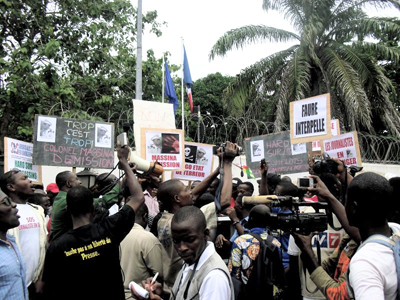
Togo journalists protest purported security threats
Dozens of Togolese journalists marched in the capital, Lomé, on Saturday to call attention to reported allegations that government security agents planned to retaliate against critical reporters. The allegations themselves are in dispute–the government called them “fabricated”–but they are set against a recent U.N. report expressing concern over the official use of arbitrary detention and…
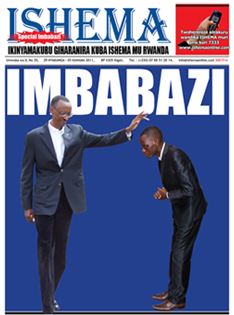
Rwandan paper calls president a ‘sociopath’, apologizes
Sometimes when a paper produces a defamatory piece, an apology will be published on page two in the next edition along with the day’s news. In Rwanda, it would appear, a paper will use an entire edition to apologize–if the insults were directed at the president. The latest issue of Ishema, at left, is perhaps a…
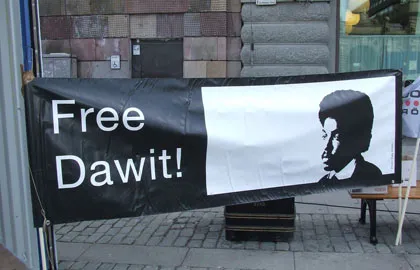
Habeas corpus writ seeks Dawit Isaac, jailed for 3,600 days
Journalist Dawit Isaac, co-founder of Eritrea’s now-defunct leading newspaper Setit, has spent nearly 10 years in one of the reclusive Red Sea nation’s secret prisons with no charges ever placed against him. Isaac’s location and health status are currently unknown, as are those of at least 16 other journalists who CPJ believes are also being…
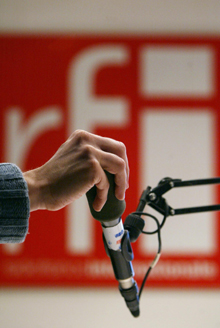
Guinea’s censorship order puts RFI in difficult spot
On Monday, Guinea’s state-controlled media regulatory agency imposed a “temporary” ban on media coverage of the July 19 attack on the private residence of President Alpha Condé, silencing private radio and television talk programs in which critical questions were being raised about the episode. In such circumstances, Guinean listeners turn to foreign media outlets such…

Terrorists? A look at two jailed Ethiopian journalists
At the end of June, Ethiopia’s Anti-Terror Task Force arrested nine people on charges of attempting to “destroy electrical and telecommunication infrastructures” with support from Ethiopia’s arch-enemy, Eritrea. Held under Ethiopia’s far-reaching antiterrorism law, only four of the suspects’ names have so far been revealed and two of them happen to be journalists.
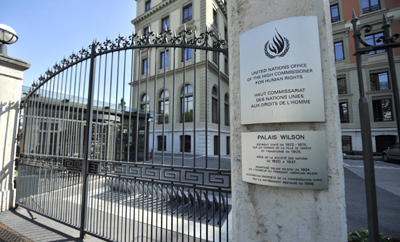
UNHCHR grills Ethiopia on anti-terror law
This week, the Human Rights Committee of the U.N. High Commissioner for Human Rights reviewed Ethiopia’s compliance with the International Covenant on Civil and Political Rights, including its press freedom record. Peppered with questions about an indefensible record of abuse–jailing the second largest number of journalists in Africa and leading the continent in Internet censorship–representatives…
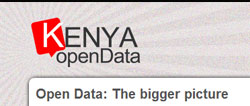
Kenya’s quiet information revolution
An information revolution is quietly unfolding in Kenya, potentially allowing the public greater access to government data and independent local news. This month, the nation became a regional leader in open government with the launch of a website providing easy access to volumes of public information. Journalists can tap into public budget data with relative…
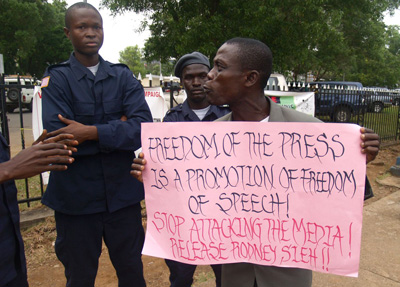
In Liberia, silencing press critics through libel lawsuits
During Liberia’s 14-year civil war, the press was silenced through violence. Journalists now say they are the victims of a more subtle assault. They say a corrupt judiciary and a vindictive use of libel suits are a threat to an otherwise burgeoning free press.
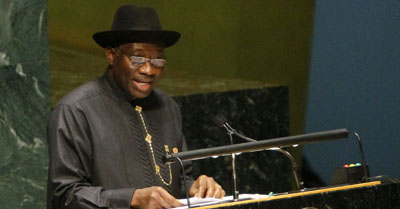
Nigeria’s new FOI law brings celebration, challenges
There is a deserved celebration in the Nigerian media over the recently passed Freedom of Information Act, which provides citizens with broad access to public records and information held by a public official or institution. It is the climax of an 11-year struggle to pass such a law in the Nigerian parliament. Indeed, the call…
